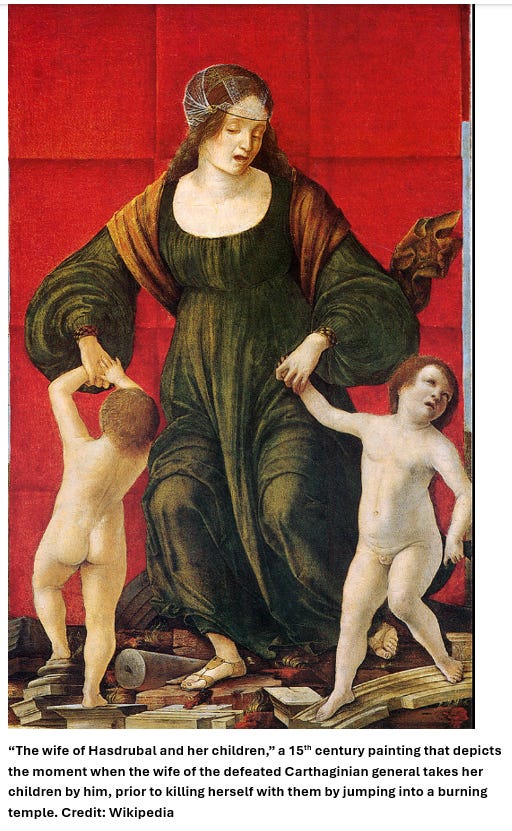To check all previous newsletters in the History of Mankind, which is pretty long, you can click here.
Just a few years after various Greek philosophers went blue in the face in Rome speaking about just conquest, Servius Sulpicius Galba – a miserly veteran of Paullus’ campaign in Macedon – became governor of Hispania and massacred much of population of Lusitania (the southwest corner of the peninsula) after he promised them land and an alliance with Rome.
In a rare display of honorable conduct with foreigners, he was prosecuted back in Rome but his friends at the senate ensured his acquittal with the help of the extraordinary gesture of bringing Galba’s weeping children into the court to invoke the jury’s pity. The story may appear trite, but many senators probably felt badly because they knew there was a massive element of hypocrisy in Galba’s trial. A similar atrocity had been committed in the other Spanish province a few years before when the praetor Lucullus had launched an unprovoked attack on a tribe, accepted their surrender and then massacred them; and he also went unpunished.
The next year, 149 BC, the Republic launched its final assault on Carthage, which was eventually burnt to the ground amidst scenes of carnage and drama, including the famous suicide of the appalled wife of the general who surrendered the capital1; the city’s main library was donated to Carthage’s sworn enemies, the Numidian kings, who presumably wiped their asses with the precious last copies of that republic’s records, history2 and literature for years to come.
Keep reading with a 7-day free trial
Subscribe to A History of Mankind to keep reading this post and get 7 days of free access to the full post archives.




